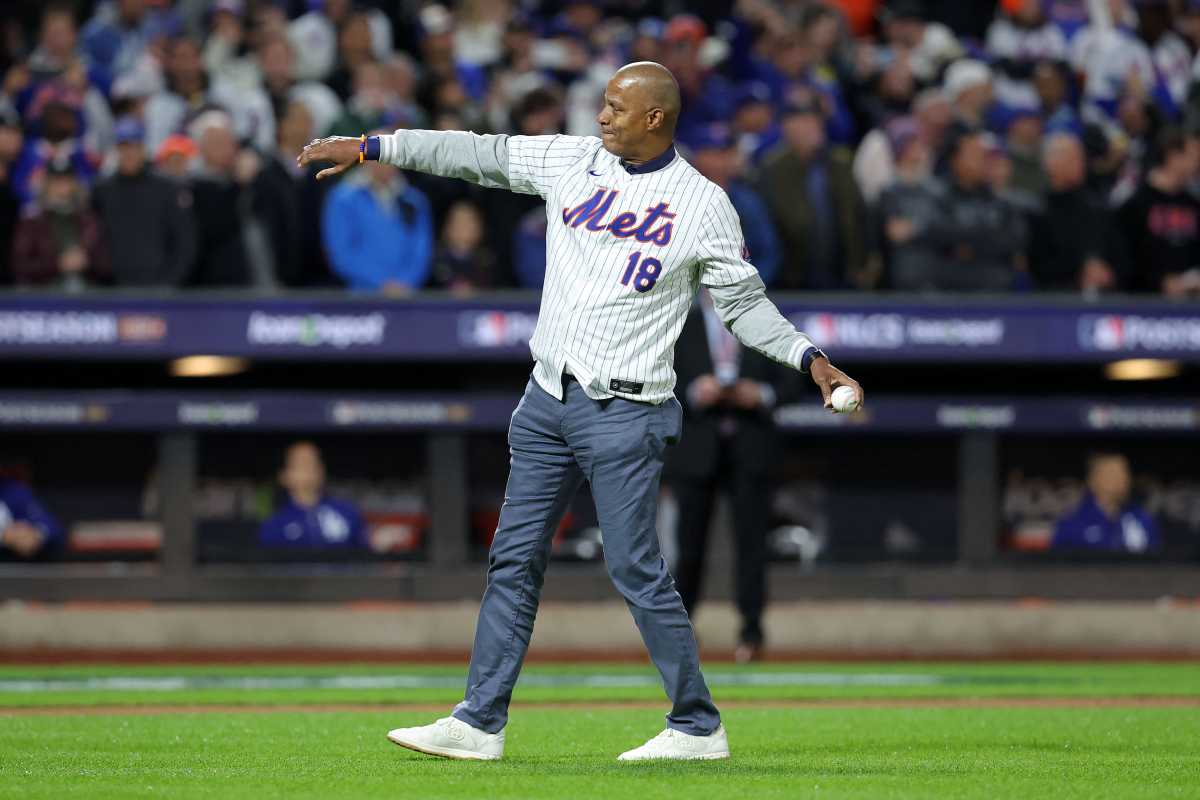After spending Jackie Robinson Day on the road in Minnesota, the Mets welcomed the Flushing Faithful to Citi Field for the Black Legacy Game, a celebration recognizing the history of Black Mets players and early pioneers of America’s pastime.
One such player being honored was Mets Hall of Famer Darryl Strawberry, who attended the game as a representative. Speaking with reporters before the game, the Straw Man reflected on what the Black Legacy Game was all about.
“It’s about the history and legacy of the players,” he said. “When you look at Jackie Robinson and some of the other greats like Frank Robinson, Hank Aaron, and Willie Mays, all these guys that played through the most difficult times, they set the standard of real character and played the game the right way.”
A homegrown superstar for the Mets, Strawberry won the 1983 Rookie of the Year award and helped propel the club to a World Series title in 1986. He later played for the Los Angeles Dodgers, San Francisco Giants, and New York Yankees, finishing his 17-year career as an eight-time All-Star and three-time World Series champion.
But before he ever took the field at Shea Stadium and hit the most home runs in Mets history (252), Strawberry nearly quit baseball at 19 years old. Struggling for the Class A Lynchburg Mets in Virginia, the Straw Man faced relentless criticism and an onslaught of racist insults.
Strawberry credited his manager, Gene Dusan, and teammate Lloyd McClendon for helping him drown out the noise and persevere in the face of adversity. He was also inspired to keep going by the legends who paved the way.
“[Baseball] taught me that you don’t give up, you don’t quit,” he said. “It’s easy to give up, it’s easy to quit because of what’s being said and what’s in front of you, and it’s how you deal with it.”
When asked about Black legacy in baseball, Strawberry said that it “means everything” to him.
Growing up in Los Angeles around the Dodgers, Strawberry formed a strong respect for Robinson at a very young age. He praised No. 42 for “enduring everything” to set the table, emphasizing that his actions reflected not only a great ballplayer but an even better human being.
“He endured everything,” he said. “All the burdens for all of us to be able to put on the uniform. He did it for all of us… Jackie wasn’t just a player – Jackie was a man of true character… That says a lot when you have to endure so much, to take so much criticism and hatred towards you, but still keep the same character.
“His legacy is living on,” he added. “It’s a great legacy for what he stood for and how he stood up for it.”
For more on Darryl Strawberry and the Mets, visit AMNY.com
Also Read: https://www.amny.com/sports/nycfc-new-england-4-19-25/





































